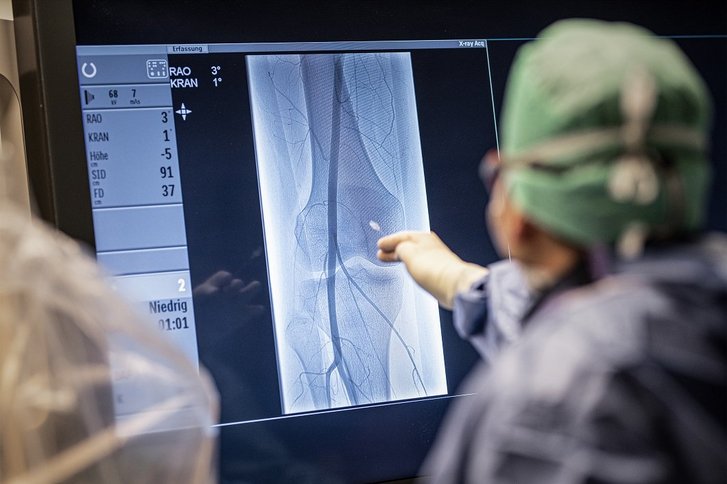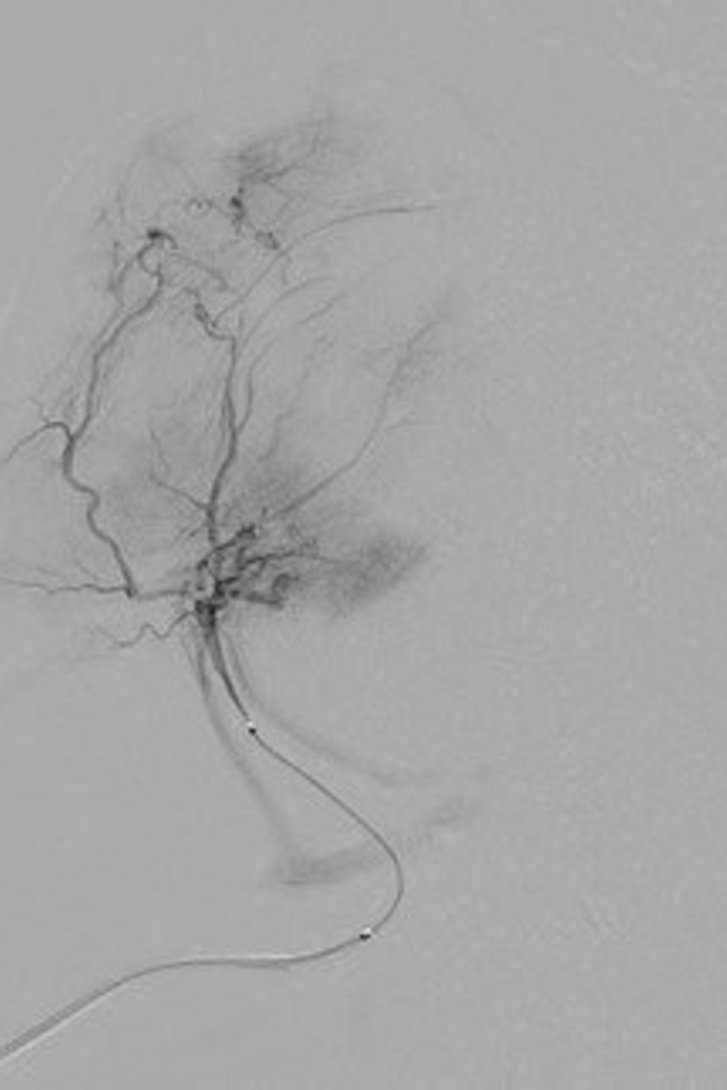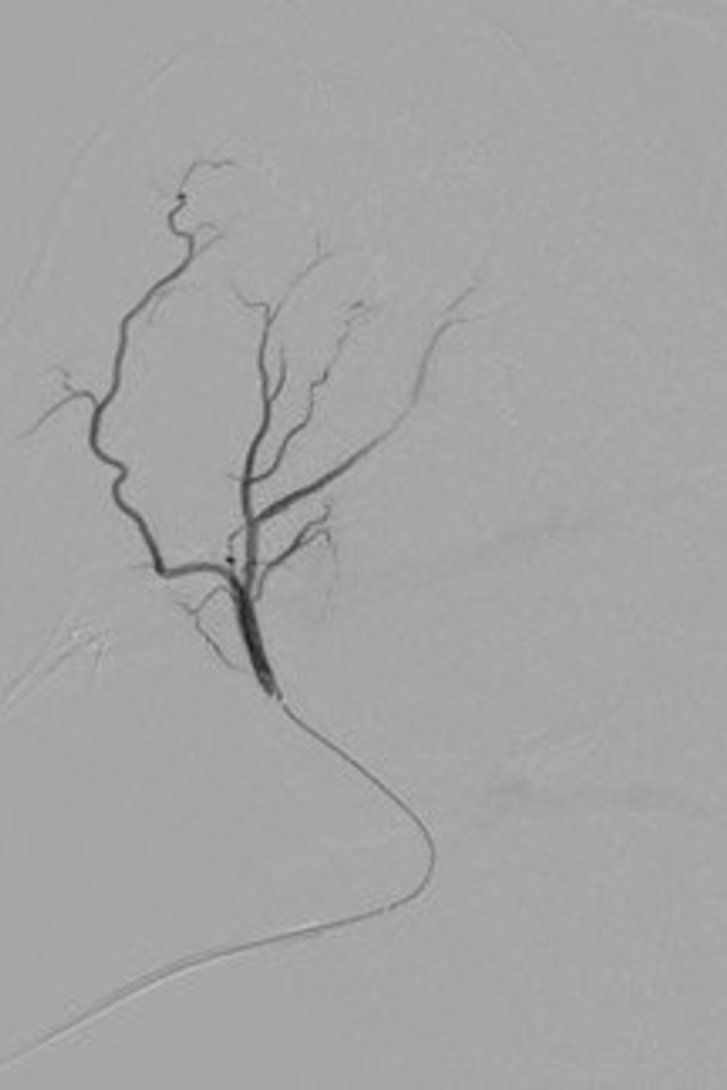For chronic joint pain and tendon disorders, conservative and surgical treatments do not always achieve a striking success. With transarterial periarticular embolization (TAPE), we are now offering a new way of therapy.
The exact cause of chronic joint pain has been a long standing mystery in medicine. There is increasing evidence that inappropriate biomechanical stress and recurrent inflammatory stimuli lead to the development of pathologic vessels on a capillary level. Simultaneously pathologic nerve endings form, transmitting the pain to the brain. These nerves are oftentimes less and sometimes not at all susceptible to pain medication. Therefore pain relief is often only possible to a limited extent.



